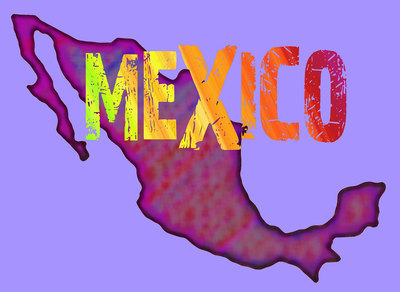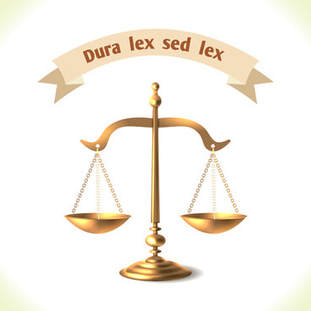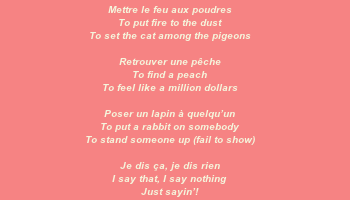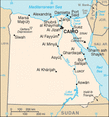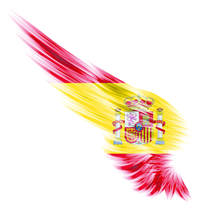
What do people look for when they travel to another country? For many it’s a rest from their everyday activities and routine, a chance to relax. Some enjoy an environment that feels like their home country with food, drink and sounds that are familiar to them. For others it is an opportunity to explore and enjoy cultural differences. The location may be one they return to time and again or they could be adventurers enjoying the new surroundings.
Even if the environment is an unfamiliar one where the visitor is comfortable among strangers and meeting new people, one aspect of their travel will be familiar. Although food is an obvious choice in many parts, language, whether there is a casual interest in it or a passion for it, is a common factor for many travellers. Some find a basic grasp of a local language, enough to be polite, is more than enough for them while others find themselves intrigued by the range of sounds and linguistic habits they encounter.
So, why doesn’t everyone strive for proficiency in another language? The honest answer is that for many of them they simply don’t have the ability to do so, the time or the interest in doing so. It is often said among anglophones that there is a lack of desire to develop other language skills. A reason given by many of them who are regular holidaymakers and even those who live in another country where the national language is not English is that there is no need because everyone else speaks English!
On the other hand, those who choose the route of learning or improving language skills generally do this out of a passion to communicate. Communication may go as far as “holiday Spanish”, more advanced language skills with an understanding of essential grammar or full blown academic achievements.
It is important to remember that whatever the aim of learning a language and whatever the motivation for learning, such a skill can have personal or professional advantages. Take the learner who wants no more than an informal knowledge of the language. The sense of achievement when simply greeting a friendly shopkeeper or frequently seen local who is a speaker of the language and understanding the response can be enormous in itself.
Others who are driven to attain a deeper understanding of their chosen language may be pleased to have such a skill appear on their curriculum vitae. With this achievement they may be able to impress a potential employer with their enhanced communication skills or motivation to study to gain additional qualifications and with this gain a new position, secondment or promotion. What drives people to take up languages as adults is therefore completely subjective with only one common factor that is the desire to communicate.
When you think about how language is learnt it’s interesting to consider for a minute how babies develop speech. They simply hear it spoken by their parents and others around them, then from there. Hence, it is no surprise for a child to speak with the accent of the area in which they are brought up and to use expressions typical of that area. On the other hand, it is sometimes found that children pick up the accent of one of their parents and can have almost a mixed or neutral sounding accent. A lot of the development and understanding of language stems from their imitation of the sounds they hear.
So, it is similar when adult language learners embarks on a course of learning. It is important to imitate the sounds made by native speakers of the given language. A minor issue here is that learners become so accustomed to the same accent, terminology and pronunciation that when someone comes along who is from a different region where the language is spoken such changes, although not extraordinary to the native speaker, can be sufficient to throw the language learner into a bit of a panic.
It would be useful now to look at this in the context of the UK. In England take an accent from the south coast and compare it to an accent from Manchester. Similarly, moving in the other direction, the difference between terminology used and pronunciation between Liverpool and Newcastle. The list could go on!
If we take the Spanish language as an example, particularly Castilian as opposed to one of Spain’s regional languages like Basque or Catalan, certain sounds can be quite distinct depending on the Spanish city. In Valladolid, “D” at the end of the word often has a “th” tone to it. The soft “th” is in fact quite a common sound in mainland Spain as the letters “Z” and “C” are pronounced “th”. The exception to this is in the Andalucia area where these letters sometimes have a softer “S” sound.
Anyone used to visiting the Canary Islands will have noticed a distinct absence of these “th” sounds in conversations with locals. Having something of a Latin American influence on the Canarian accent, Castilian spoken there has a much softer, less harsh sounding tone compared to the mainland variety. As in Latin American Spanish, the “C” and “Z” are pronounced as a soft “S”.
Some Spanish learners find the softer pronunciation more natural, however, in the UK, many Spanish classes teach the European dialect. Once some degree of competence and confidence is attained in one it becomes far easier to adjust the ear to differences in pronunciation. Anyone using Spanish in a professional capacity such as interpreters and many translators can confirm that the ability to decipher both the dialects and accents of the various regions is what makes a Spanish language specialist.
Even if the environment is an unfamiliar one where the visitor is comfortable among strangers and meeting new people, one aspect of their travel will be familiar. Although food is an obvious choice in many parts, language, whether there is a casual interest in it or a passion for it, is a common factor for many travellers. Some find a basic grasp of a local language, enough to be polite, is more than enough for them while others find themselves intrigued by the range of sounds and linguistic habits they encounter.
So, why doesn’t everyone strive for proficiency in another language? The honest answer is that for many of them they simply don’t have the ability to do so, the time or the interest in doing so. It is often said among anglophones that there is a lack of desire to develop other language skills. A reason given by many of them who are regular holidaymakers and even those who live in another country where the national language is not English is that there is no need because everyone else speaks English!
On the other hand, those who choose the route of learning or improving language skills generally do this out of a passion to communicate. Communication may go as far as “holiday Spanish”, more advanced language skills with an understanding of essential grammar or full blown academic achievements.
It is important to remember that whatever the aim of learning a language and whatever the motivation for learning, such a skill can have personal or professional advantages. Take the learner who wants no more than an informal knowledge of the language. The sense of achievement when simply greeting a friendly shopkeeper or frequently seen local who is a speaker of the language and understanding the response can be enormous in itself.
Others who are driven to attain a deeper understanding of their chosen language may be pleased to have such a skill appear on their curriculum vitae. With this achievement they may be able to impress a potential employer with their enhanced communication skills or motivation to study to gain additional qualifications and with this gain a new position, secondment or promotion. What drives people to take up languages as adults is therefore completely subjective with only one common factor that is the desire to communicate.
When you think about how language is learnt it’s interesting to consider for a minute how babies develop speech. They simply hear it spoken by their parents and others around them, then from there. Hence, it is no surprise for a child to speak with the accent of the area in which they are brought up and to use expressions typical of that area. On the other hand, it is sometimes found that children pick up the accent of one of their parents and can have almost a mixed or neutral sounding accent. A lot of the development and understanding of language stems from their imitation of the sounds they hear.
So, it is similar when adult language learners embarks on a course of learning. It is important to imitate the sounds made by native speakers of the given language. A minor issue here is that learners become so accustomed to the same accent, terminology and pronunciation that when someone comes along who is from a different region where the language is spoken such changes, although not extraordinary to the native speaker, can be sufficient to throw the language learner into a bit of a panic.
It would be useful now to look at this in the context of the UK. In England take an accent from the south coast and compare it to an accent from Manchester. Similarly, moving in the other direction, the difference between terminology used and pronunciation between Liverpool and Newcastle. The list could go on!
If we take the Spanish language as an example, particularly Castilian as opposed to one of Spain’s regional languages like Basque or Catalan, certain sounds can be quite distinct depending on the Spanish city. In Valladolid, “D” at the end of the word often has a “th” tone to it. The soft “th” is in fact quite a common sound in mainland Spain as the letters “Z” and “C” are pronounced “th”. The exception to this is in the Andalucia area where these letters sometimes have a softer “S” sound.
Anyone used to visiting the Canary Islands will have noticed a distinct absence of these “th” sounds in conversations with locals. Having something of a Latin American influence on the Canarian accent, Castilian spoken there has a much softer, less harsh sounding tone compared to the mainland variety. As in Latin American Spanish, the “C” and “Z” are pronounced as a soft “S”.
Some Spanish learners find the softer pronunciation more natural, however, in the UK, many Spanish classes teach the European dialect. Once some degree of competence and confidence is attained in one it becomes far easier to adjust the ear to differences in pronunciation. Anyone using Spanish in a professional capacity such as interpreters and many translators can confirm that the ability to decipher both the dialects and accents of the various regions is what makes a Spanish language specialist.
